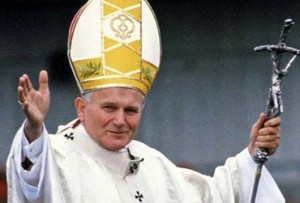 I can’t fully explain it, because it wasn’t what my parents tried to teach me. But this is what I learned as a child: sex is dirty. I knew, in my head, that this wasn’t true, and that sex, in its proper context, was a blessed, holy thing. But even for good Catholic girls who follow most of the rules, the fallout of the sexual revolution causes harm. By the time I got married, my head was so mixed up that intimacy proved to be a stumbling block instead of a grace.
I can’t fully explain it, because it wasn’t what my parents tried to teach me. But this is what I learned as a child: sex is dirty. I knew, in my head, that this wasn’t true, and that sex, in its proper context, was a blessed, holy thing. But even for good Catholic girls who follow most of the rules, the fallout of the sexual revolution causes harm. By the time I got married, my head was so mixed up that intimacy proved to be a stumbling block instead of a grace.
And that was before my husband and I endured three years of infertility. I looked back on all my past mistakes to find what I did to deserve that suffering. By the time we came out of that trial and had our first child, intimacy was nothing more than a chore. It was the weakest part of our marriage, and our greatest source of conflict.
Then something happened. To continue teaching natural family planning through the Couple to Couple League, we had to go through a retraining program that introduced us to Theology of the Body, St. John Paul II’s groundbreaking teaching.
At first, I didn’t really get it. But slowly, the concepts took root: we are made of both body and soul; whatever we do with one affects the other. The body speaks a language, and it is through the way we use the body that we reflect our identity as persons made in God’s image. We show—or fail to show—God’s love through our actions.
I began to see the truth of Theology of the Body manifest in the world. When you exercise, you feel better emotionally as well as physically. When you break up with a boyfriend, your stomach knots up. When you sense danger, your heart beats faster and you perspire.
In other words, our bodies go where our souls lead, and our souls respond to physical signals. In terms of marital intimacy, we cannot put barriers in the way of fertility and still speak an authentic language of love.
My husband and I didn’t use contraception, so it took a while for me to realize that my barriers were emotional. I had always given myself fully on a physical level. But I knew that my view of intimacy as a chore was hurtful to my husband, who longed to be generous and felt rejected when his efforts were shrugged off.
Finally, I realized I was not acting in love. I began to pray. I began to seek healing. Most of all, I began to accept the responsibility for changing my attitude toward intimacy. As my heart and mind united, things changed dramatically.
I recognize now that the truths St. John Paul II explored in Theology of the Body have influence far beyond the bedroom. Love is a language expressed in body, mind and soul. Our physical actions have the power to change our hearts. Likewise, the attitudes we cultivate can and will influence the decisions we make, the words we speak, and the everyday sacrifices that we do – or don’t – offer as gifts of love to our spouses.
If we are to love, then, as God calls us to love, we have to be aware of the times when soul and body are at odds, and seek to reconcile them. We have to be willing to examine our conscience and open ourselves to the humility of putting our bodies at the service of our families. We have to make a concerted effort to redirect thoughts that push us in selfish directions. This is not an easy task, but it is worth the effort, because it elevates our relationships and brings us closer to God.
And that, after all, is the ultimate purpose of our vocation as husband and wife.
Reprinted with permission from FathersForGood.org.



